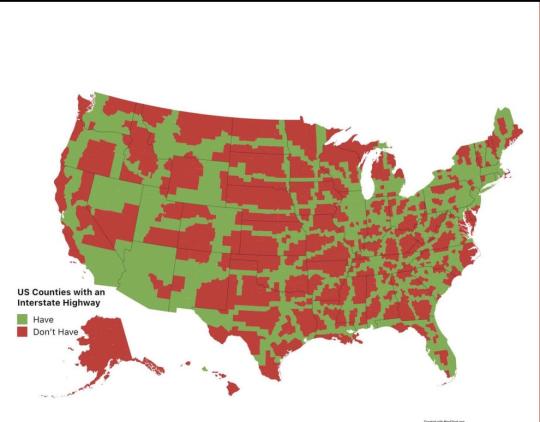#Intersted
Explore tagged Tumblr posts
Video
youtube
Volksfest Pfaffenhofen an der Ilm Rundgang 2024 -Pfaffenhofen a.d.Ilm- -...
#youtube#2024#arkido881#Ilm#an#der#Pfaffenhofen#PfaffenhofenanderIlm#Rundgang#Volksfest#Volksfestrundgang#German#Germany#Deusch#Deuschland#Bayern#Bavaria#Cool#Nice#Great#Fun#Funny#Interesting#Intersted#Volksfestfahrgeschäft#Fahrgeschäft#Schausteller#Volksfestschausteller#Party#Partyzelt
1 note
·
View note
Text
Tadc..... dinosaurs.... tadc dinosaurs



#returning to my roots with this one#proud of the fact that i was able to draw anthro dinos w out fucking it up somehow#finallyyyy#my art#pomnis a dryo cuz theyre smaller and have round features w out being too weak hahhha#jax is a galli cuz theyre tall and are extremely annoying in this one game i play just like him<3 /pos#rags a mai cuz theyre so motherly#i mean the name literally means “good mother lizard”#gangles a psitt cuz they have an intersting face shape for a mask and are small#zoobles a pteranodon cuz they dont fit in not being dinos and everything#like how zooble doesnt fit in much cuz theyre a pile of parts rlly#kingers a camara cuz tall and silly looking /pos#caines a nanotyrannus cuz i wanted him to be a rex of sorts but not biiig#tadc#tadc art#dinosaurs#tadc dinos#the amazing digital circus#tadc fanart#tadc pomni#tadc jax#tadc ragatha#tadc zooble#tadc gangle#tadc kinger#tadc caine
1K notes
·
View notes
Text

space sweepers but they're delivery people and are at no point on screen through the entire movie
#fantasy high#riz gukgak#kristen applebees#gorgug thistlespring#adaine abernant#fabian seacaster#figueroth faeth#the bad kids#half tempted to say these names are forum handles they use so much it pretty much became their professional names lol#I keep them teenagers bc its funnier that way#no real lore I just like drawing this. but I do think abt how theyre all weirdos too also bc thats funny to me#riz is a huge conspiracyhead who does everything by hands. he has a casio fx-570 in mint condition. nobody knows how he's maintaining it#he is nonetheless Really Good at his job. which somewhat tracks bc it's a job that requires keeping up with interstation conflicts#and new policies and an obsessive amount of planning. but he is Too Good at it. and also he dresses like that#kristen has the atomic engine that theoretically lets her unmake and remake matters with her mind. but it consumes a huge amount#of energy so it's mostly useless. she's still a cult survivor also#gorgug lives his entire life on a ship with his parents who quit a cushy deal maintaining a space station bc he wouldn't be allowed on#the low gravity let him grow very tall but also his oxygen saturation is pretty bad so he's got breathing support#fig is a robot who just found out she's a robot like two months ago. she's been assuming everyone's a robot like her and she's been feeling#very betrayed by her mom lying about that part. she's on a body mod spree which is rough bc system-specific parts are expensive#and so is adapting random parts to her system#fabian's still a pirate captain's son. can't say anything that'd be able to get the vibes across clearer than that#adaine went to tech/business school. she put her monthly allowance towards an ecoterrorist group in her academy which turned out to be an o#and she's currently wanted by UTS. more than fabian. which makes him slightly mad#she's also acquired a passion for low-tech weaponry on the way. she likes ice picks and cleavers#I think up all of this for no reason except that once again the idea of all these people being 1/teens and 2/on the same ship to be posties#is hilarious to me. esp. if they were in a forum group chat beforehand
557 notes
·
View notes
Photo

US counties with/without an interstate
859 notes
·
View notes
Text
"If I want to speak a bit more and have fun, would be Carlos or Pierre but Carlos or Pierre would be a mess like after a day I will just want to sleep and with them it would be very difficult because they are messy."
#what do you mean charles please elaborate#he tried to elaborate but he couldn't really#honestly how can this Not be about sex#also a whole day and then he wants to sleep hmm intersting#charles leclerc#f1#carlos sainz#pierre gasly#beyond the grid#formula 1#mypost
313 notes
·
View notes
Text
Surveillance pricing

THIS WEEKEND (June 7–9), I'm in AMHERST, NEW YORK to keynote the 25th Annual Media Ecology Association Convention and accept the Neil Postman Award for Career Achievement in Public Intellectual Activity.

Correction, 7 June 2024: The initial version of this article erroneously described Jeffrey Roper as the founder of ATPCO. He benefited from ATPCO, but did not co-found it. The initial version of this article called ATPCO "an illegal airline price-fixing service"; while ATPCO provides information that the airlines use to set prices, it does not set prices itself, and while the DOJ investigated the company, they did not pursue a judgment declaring the service to be illegal. I regret the error.
Noted anti-capitalist agitator Adam Smith had it right: "People of the same trade seldom meet together, even for merriment and diversion, but the conversation ends in a conspiracy against the public, or in some contrivance to raise prices."
Despite being a raving commie loon, Smith's observation was so undeniably true that regulators, policymakers, and economists couldn't help but acknowledge that it was true. The trustbusting era was defined by this idea: if we let the number of companies in a sector get too small, or if we let one or a few companies get too big, they'll eventually start to rig prices.
What's more, once an industry contracts corporate gigantism, it will become too big to jail, able to outspend and overpower the regulators charged with reining in its cheating. Anyone who believes Smith's self-evident maxim had to accept its conclusion: that companies had to be kept smaller than the state that regulated them. This wasn't about "punishing bigness" – it was the necessary precondition for a functioning market economy.
We kept companies small for the same reason that we limited the height of skyscrapers: not because we opposed height, or failed to appreciate the value of a really good penthouse view – rather, to keep the building from falling over and wrecking all the adjacent buildings and the lives of the people inside them.
Starting in the neoliberal era – Carter, then Reagan – we changed our tune. We liked big business. A business that got big was doing something right. It was perverse to shut down our best companies. Instead, we'd simply ban big companies from rigging prices. This was called the "consumer welfare" theory of antitrust. It was a total failure.
40 years later, nearly every industry is dominated by a handful of companies, and these companies price-gouge us with abandon. Worse, they use their gigantic ripoff winnings to fill war-chests that fund the corruption of democracy, capturing regulators so that they can rip us off even more, while ignoring labor, privacy and environmental law and ducking taxes.
It turns out that keeping gigantic, opaque, complex corporations honest is really hard. They have so many ways to shuffle money around that it's nearly impossible to figure out what they're doing. Digitalization makes things a million times worse, because computers allow businesses to alter their processes so they operate differently for every customer, and even for every interaction.
This is Dieselgate times a billion: VW rigged its cars to detect when they were undergoing emissions testing and switch to a less polluting, more compliant mode. But when they were on the open road, they spewed lethal quantities of toxic gas, killing people by the thousands. Computers don't make corporate leaders more evil, but they let evil corporate leaders execute far more complex and nefarious plans. Digitalization is a corporate moral hazard, making it just too easy and tempting to rig the game.
That's why Toyota, the largest car-maker in the world, just did Dieselgate again, more than a decade later. Digitalization is a temptation no giant company can resist:
https://www.bbc.com/news/articles/c1wwj1p2wdyo
For forty years, pro-monopoly cheerleaders insisted that we could allow companies to grow to unimaginable scale and still prevent cheating. They passed rules banning companies from explicitly forming agreements to rig prices. About ten seconds later, new middlemen popped up offering "information brokerages" that helped companies rig prices without talking to one another.
Take Agri Stats: the country's hyperconcentrated meatpacking industry pays Agri Stats to "consult on prices." They provide Agri Stats with a list of their prices, and then Agri Stats suggests changes based on its analysis. What does that analysis consist of? Comparing the company's prices to its competitors, who are also Agri Stats customers:
https://pluralistic.net/2023/10/04/dont-let-your-meat-loaf/#meaty-beaty-big-and-bouncy
In other words, Agri Stats finds the highest price for each product in the sector, then "advises" all the companies with lower prices to raise their prices to the "competitive" level, creating a one-way ratchet that sends the price of food higher and higher.
More and more sectors have an Agri Stats, and digitalization has made this price-gouging system faster, more efficient, and accessible to sectors with less concentration. Landlords, for example, have tapped into Realpage, a "data broker" that the same thing to your rent that Agri Stats does to meat prices. Realpage requires the landlords who sign up for its service to accept its "recommendations" on minimum rents, ensuring that prices only go up:
https://popular.info/p/feds-raid-corporate-landlord-escalating
Writing for The American Prospect, Luke Goldstein lays out the many ways in which these digital intermediaries have supercharged the business of price-rigging:
https://prospect.org/economy/2024-06-05-three-algorithms-in-a-room/
Goldstein identifies a kind of patient zero for this ripoff epidemic: Jeffrey Roper, a former Alaska Air exec who benefited from a service that helps airlines set prices. ATPCO was investigated by the DOJ in the 1990s, but the enforcers lost their nerve and settled with the company, which agreed to apply some ornamental fig-leafs to its collusion-machine. Even those cosmetic changes were seemingly a bridge too far Roper, who left the US.
But he came back to serve as Realpage's "principal scientist" – the architect of a nationwide scheme to make rental housing vastly more expensive. For Roper, the barrier to low rents was empathy: landlords felt stirrings of shame when they made shelter unaffordable to working people. Roper called these people "idiots" who sentimentality "costs the whole system."
Sticking a rent-gouging computer between landlords and the people whose lives they ruin is a classic "accountability sink," as described in Dan Davies' new book "The Unaccountability Machine: Why Big Systems Make Terrible Decisions – and How The World Lost its Mind":
https://profilebooks.com/work/the-unaccountability-machine/
It's a form of "empiricism washing": if computers are working in the abstract realm of pure numbers, they're just moving the objective facts of the quantitative realm into the squishy, imperfect qualitative world. Davies' interview on Trashfuture is excellent:
https://trashfuturepodcast.podbean.com/e/fire-sale-at-the-accountability-store-feat-dan-davies/
To rig prices, an industry has to solve three problems: the problem of coming to an agreement to fix prices (economists call this "the collective action problem"); the problem of coming up with a price; and the problem of actually changing prices from moment to moment. This is the ripoff triangle, and like a triangle, it has many stable configurations.
The more concentrated an industry is, the easier it is to decide to rig prices. But if the industry has the benefit of digitalization, it can swap the flexibility and speed of computers for the low collective action costs from concentration. For example, grocers that switch to e-ink shelf tags can make instantaneous price-changes, meaning that every price change is less consequential – if sales fall off after a price-hike, the company can lower them again at the press of a button. That means they can collude less explicitly but still raise prices:
https://pluralistic.net/2024/03/26/glitchbread/#electronic-shelf-tags
My name for this digital flexibility is "twiddling." Businesses with digital back-ends can alter their "business logic" from second to second, and present different prices, payouts, rankings and other key parts of the deal to every supplier or customer they interact with:
https://pluralistic.net/2023/02/19/twiddler/
Not only does twiddling make it easier to rip off suppliers, workers and customers, it also makes these crimes harder to detect. Twiddling made Dieselgate possible, and it also underpinned "Greyball," Uber's secret strategy of refusing to send cars to pick up transportation regulators who would then be able to see firsthand how many laws the company was violating:
https://www.nytimes.com/2017/03/03/technology/uber-greyball-program-evade-authorities.html
Twiddling is so easy that it has brought price-fixing to smaller companies and less concentrated sectors, though the biggest companies still commit crimes on a scale that put these bit-players to shame. In The Prospect, David Dayen investigates the "personalized pricing" ripoff that has turned every transaction into a potential crime-scene:
https://prospect.org/economy/2024-06-04-one-person-one-price/
"Personalized pricing" is the idea that everything you buy should be priced based on analysis of commercial surveillance data that predicts the maximum amount you are willing to pay.
Proponents of this idea – like Harvard's Pricing Lab with its "Billion Prices Project" – insist that this isn't a way to rip you off. Instead, it lets companies lower prices for people who have less ability to pay:
https://thebillionpricesproject.com/
This kind of weaponized credulity is totally on-brand for the pro-monopoly revolution. It's the same wishful thinking that led regulators to encourage monopolies while insisting that it would be possible to prevent "bad" monopolies from raising prices. And, as with monopolies, "personalized pricing" leads to an overall increase in prices. In econspeak, it is a "transfer of wealth from consumer to the seller."
"Personalized pricing" is one of those cuddly euphemisms that should make the hair on the back of your neck stand up. A more apt name for this practice is surveillance pricing, because the "personalization" depends on the vast underground empire of nonconsensual data-harvesting, a gnarly hairball of ad-tech companies, data-brokers, and digital devices with built-in surveillance, from smart speakers to cars:
https://pluralistic.net/2024/03/12/market-failure/#car-wars
Much of this surveillance would be impractical, because no one wants their car, printer, speaker, watch, phone, or insulin-pump to spy on them. The flexibility of digital computers means that users always have the technical ability to change how these gadgets work, so they no longer spy on their users. But an explosion of IP law has made this kind of modification illegal:
https://locusmag.com/2020/09/cory-doctorow-ip/
This is why apps are ground zero for surveillance pricing. The web is an open platform, and web-browsers are legal to modify. The majority of web users have installed ad-blockers that interfere with the surveillance that makes surveillance pricing possible:
https://doc.searls.com/2023/11/11/how-is-the-worlds-biggest-boycott-doing/
But apps are a closed platform, and reverse-engineering and modifying an app is a literal felony – several felonies, in fact. An app is just a web-page skinned with enough IP to make it a felony to modify it to protect your consumer, privacy or labor rights:
https://pluralistic.net/2024/05/07/treacherous-computing/#rewilding-the-internet
(Google is leading a charge to turn the web into the kind of enshittifier's paradise that apps represent, blocking the use of privacy plugins and proposing changes to browser architecture that would allow them to felonize modifying a browser without permission:)
https://pluralistic.net/2023/08/02/self-incrimination/#wei-bai-bai
Apps are a twiddler's playground. Not only can they "customize" every interaction you have with them, but they can block you (or researchers seeking to help you) from recording and analyzing the app's activities. Worse: digital transactions are intimate, contained to the palm of your hand. The grocer whose e-ink shelf-tags flicker and reprice their offerings every few seconds can be collectively observed by people who are in the same place and can start a conversation about, say, whether to come back that night a throw a brick through the store's window to express their displeasure. A digital transaction is a lonely thing, atomized and intrinsically shielded from a public response.
That shielding is hugely important. The public hates surveillance pricing. Time and again, through all of American history, there have been massive and consequential revolts against the idea that every price should be different for every buyer. The Interstate Commerce Commission was founded after Grangers rose up against the rail companies' use of "personalized pricing" to gouge farmers.
Companies know this, which is why surveillance pricing happens in secret. Over and over, every day, you are being gouged through surveillance pricing. The sellers you interact with won't tell you about it, so to root out this practice, we have to look at the B2B sales-pitches from the companies that sell twiddling tools.
One of these companies is Plexure, partly owned by McDonald's, which provides the surveillance-pricing back-ends for McD's, Ikea, 7-Eleven, White Castle and others – basically, any time a company gives you a hard-sell to order via its apps rather than its storefronts or its website, you should assume you're getting twiddled, hard.
These companies use the enshittification playbook to trap you into using their apps. First, they offer discounts to customers who order through their apps – then, once the customers are fully committed to shopping via app, they introduce surveillance pricing and start to jack up the prices.
For example, Plexure boasts that it can predict what day a given customer is getting paid on and use that information to raise prices on all the goods the customer shops for on that day, on the assumption that you're willing to pay more when you've got a healthy bank balance.
The surveillance pricing industry represents another reason for everything you use to spy on you – any data your "smart" TV or Nest thermostat or Ring doorbell can steal from you can be readily monetized – just sell it to a surveillance pricing company, which will use it to figure out how to charge you more for everything you buy, from rent to Happy Meals.
But the vast market for surveillance data is also a potential weakness for the industry. Put frankly: the commercial surveillance industry has a lot of enemies. The only thing it has going for it is that so many of these enemies don't know that what's they're really upset about is surveillance.
Some people are upset because they think Facebook made Grampy into a Qanon. Others, because they think Insta gave their kid anorexia. Some think Tiktok is brainwashing millennials into quoting Osama bin Laden. Some are upset because the cops use Google location data to round up Black Lives Matter protesters, or Jan 6 insurrectionists. Some are angry about deepfake porn. Some are angry because Black people are targeted with ads for overpriced loans or colleges:
https://www.theregister.com/2024/06/04/meta_ad_algorithm_discrimination/
And some people are angry because surveillance feeds surveillance pricing. The thing is, whatever else all these people are angry about, they're all angry about surveillance. Are you angry that ad-tech is stealing a 51% share of news revenue? You're actually angry about surveillance. Are you angry that "AI" is being used to automatically reject resumes on racial, age or gender grounds? You're actually angry about surveillance.
There's a very useful analogy here to the history of the ecology movement. As James Boyle has long said, before the term "ecology" came along, there were people who cared about a lot of issues that seemed unconnected. You care about owls, I care about the ozone layer. What's the connection between charismatic nocturnal avians and the gaseous composition of the upper atmosphere? The term ecology took a thousand issues and welded them together into one movement.
That's what's on the horizon for privacy. The US hasn't had a new federal consumer privacy law since 1988, when Congress acted to ban video-store clerks from telling the newspapers what VHS cassettes you were renting:
https://en.wikipedia.org/wiki/Video_Privacy_Protection_Act
We are desperately overdue for a new consumer privacy law, but every time this comes up, the pro-surveillance coalition defeats the effort. but as people who care about conspiratorialism, kids' mental health, spying by foreign adversaries, phishing and fraud, and surveillance pricing all come together, they will be an unbeatable coalition:
https://pluralistic.net/2023/12/06/privacy-first/#but-not-just-privacy
Meanwhile, the US government is actually starting to take on these ripoff artists. The FTC is working to shut down data-brokers:
https://pluralistic.net/2023/08/16/the-second-best-time-is-now/#the-point-of-a-system-is-what-it-does
The FBI is raiding landlords to build a case against Frontpage and other rent price-fixers:
https://popular.info/p/feds-raid-corporate-landlord-escalating
Agri Stats is facing a DoJ lawsuit:
https://www.nationalhogfarmer.com/market-news/agri-stats-loses-motions-to-transfer-dismiss-in-doj-antitrust-case
Not every federal agency has gotten the message, though. Trump's Fed Chairman, Jerome Powell – whom Biden kept on the job – has been hiking interest rates in a bid to reduce our purchasing power by making millions of Americans poorer and/or unemployed. He's doing this to fight inflation, on the theory that inflation is being cause by us being too well-off, and therefore trying to buy more goods than are for sale.
But of course, interest rates are inflationary: when interest rates go up, it gets more expensive to pay your credit card bills, lease your car, and pay a mortgage. And where we see the price of goods shooting up, there's abundant evidence that this is the result of greedflation – companies jacking up their prices and blaming inflation. Interest rate hawks say that greedflation is impossible: if one company raises its prices, its competitors will swoop in and steal their customers with lower prices.
Maybe they would do that – if they didn't have a toolbox full of algorithmic twiddling options and a deep trove of surveillance data that let them all raise prices together:
https://prospect.org/blogs-and-newsletters/tap/2024-06-05-time-for-fed-to-meet-ftc/
Someone needs to read some Adam Smith to Chairman Powell: "People of the same trade seldom meet together, even for merriment and diversion, but the conversation ends in a conspiracy against the public, or in some contrivance to raise prices."

If you'd like an essay-formatted version of this post to read or share, here's a link to it on pluralistic.net, my surveillance-free, ad-free, tracker-free blog:
https://pluralistic.net/2024/06/05/your-price-named/#privacy-first-again

Image: Cryteria (modified) https://commons.wikimedia.org/wiki/File:HAL9000.svg
CC BY 3.0 https://creativecommons.org/licenses/by/3.0/deed.en
#pluralistic#david dayen#the american prospect#surveillance advertising#commercial surveillance#predictive pricing#monopolism#monopolies#antitrust#unfair and deceptive method of competition#ftc act Section 5#ftca5#ripoffs#surveillance#twiddling#ip#apps#apps are shit#ziprecruiter#personalized pricing#price gouging#just and reasonable#interstate commerce act#one person one price#surveillance pricing#privacy first#billion prices project#ecommerce#ninetailed#cortado group
423 notes
·
View notes
Text
Joshua Tree 🥬 (Yucca Palm)

#Yucca Brevifolia#Joshua Tree#Yucca Palm#Plants#Tree#Sky#Clouds#Mountains#Desert#Travel#Interstate#Highway#Cloudy Sky#Joshua Tree Parkway#Arizona's Joshua Tree Forest#Mohave County#Arizona
173 notes
·
View notes
Text

do not: redistribute, use for ai, tag as kin/me/id, use or edit without permission
hi twewy nation i spent like 4 days on this and now i'm going to have him photo printed and put on my wall. sorry for the watermark, i spent way too long on this and i'm not risking posting this without it!!
#twewy#the world ends with you#subarashiki kono sekai#yoshiya kiryu#getting some extra photo prints too for my store for anyone intersted
205 notes
·
View notes
Text



couldn't find the painting behind louis yet but i found these two!!
#interview with the vampire#iwtv#iwtv s2#louis de pointe du lac#the vampire armand#armand#daniel malloy#iwtv art#rahmon olugunna#TWINS IS A VERY INTERSTING TITLE........ since we have some twins on our horizon#amc iwtv#iwtv 2022
428 notes
·
View notes
Text

Daily TMA 193 - Basira!
#tma#mod cedar#the magnus archives#basira hussain#tma basira#mother is mothering#i wish the colors were a bit more intersting tbh#but i’m happy with it overall
456 notes
·
View notes
Text
The cool thing about living abroad is that even mundane, boring and even ugly things can become exciting
#like wow I'm on the interstate???#some of the trees look different?#this store exists here? that store doesn't?#oh look they got a different species of bug#oh look a truck#oh a street sign#macksachusetts
245 notes
·
View notes
Text
#buddie#911 abc#911shitposts#evan buckley#eddie diaz#Just an intersting parallel imo#both scenes from shot/lightening to “are you ok?” “no”/“do more”#3 minutes and 17 seconds#not the first to say it not the last#fyi if you're antiTommy I don't like y'all and I won't contribute to your hate
775 notes
·
View notes
Text

pueblo, colo. july 2024
© tag christof
#tag christof#america is dead#on the road#denny's#nowhere#interstate#fujifilm gfx#medium format#colorado
366 notes
·
View notes
Text










A sunny forecast.
#my personal weatherman#taikan yoho#my personal weatherman ep 1#this was an intense and intersting first episode#japanese series#japanese drama#japanese bl#bl drama#bl series#asianlgbtqdrama#myedit
1K notes
·
View notes
Text
Maedhros didn't give up kingship.
In the Silm it sounds like he went to Fingolfin and said "I don't wanna be king anymore, it's your turn." because it's so shortened and his giving up of the claim to the crown is put BEFORE the council.
In The Grey Annals is a longer version where the council VOTES, on who should lead the Noldor. And Fingolfin wins. Maedhros ACCEPTS the decision (unlike his brothers) which could be called "waving his claim to kingship", yes, but it's still a very different situation than in the Silm.
The kingship going to Fingolfin not by Maedhros initiative also fits the whole "dispossessed" epithet a little better. The kingship is rather taken than given away.
(Also interesting is that it seems like that Maedhros might have become king if Caranthir hadn't behaved that badly at the council.)
Here's the bit from The War Of The Jewels if anyone's interested:

#silmarillion#noldor#maedhros#caranthir#silm#I found this sooo intersting when I first read it and just forgot to post about it for 10 months or smth#Fingolfin
279 notes
·
View notes
Text




so many crazy good mods coming out lately @_@
#incredibox#incredibox fanart#incredibox mod#incredibox bit by bit#incredibox colorbox#colorbox black#incredibox interstate 190#incredibox the cabin#blood tw#body horror tw#my art
68 notes
·
View notes